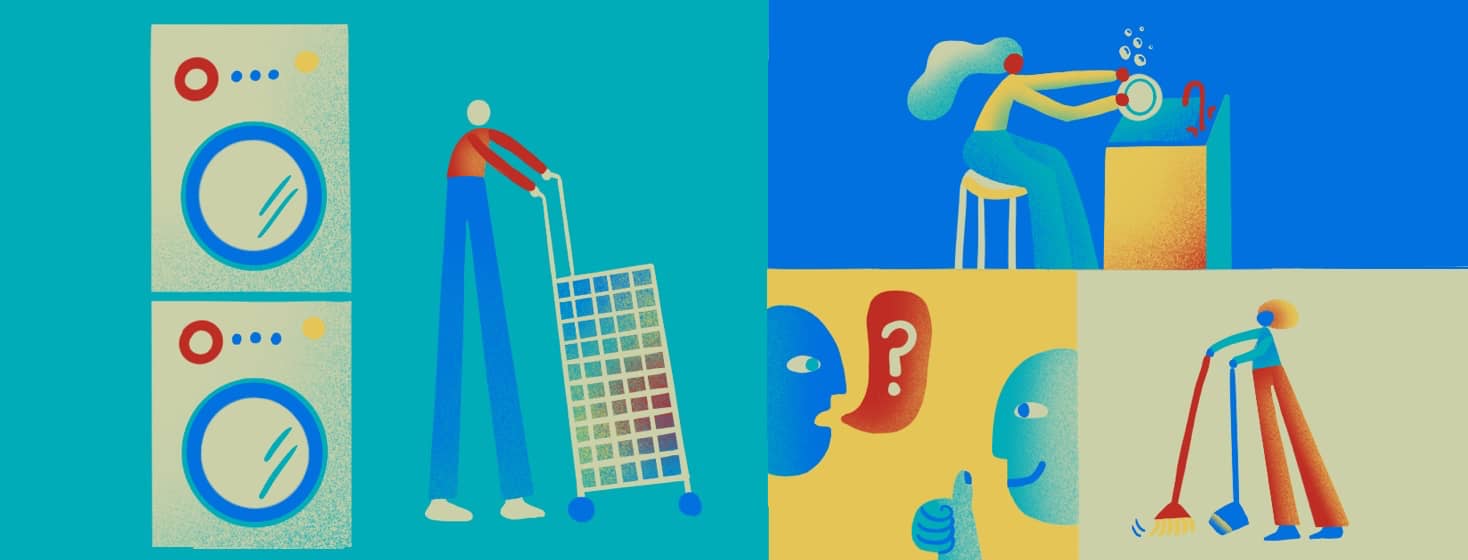Tackling Daily Tasks with the Help of In-Home Care
My grandma moved into an assisted living facility just over a year ago. It hasn't all been smooth, but it's been helpful to have meals and housekeeping services provided. My family no longer has to worry about it.
However, that doesn't mean we don't have to assess what the right level of support is on a continual basis! One reason we've realized this is important is so we - especially my mom and her siblings - can continue to enjoy more of our visits rather than have to do care and related tasks.
For instance, while it's not a bad job, leftovers come up from the dining room on a near-daily basis. Someone has to ensure those get moved out of the fridge when necessary. Or, my aunt will throw a load of laundry in during the visit but has to leave to move it to the dryer and then bring it back into her apartment. These kinds of tasks are not a big deal, but they are disruptive to the visit, which makes it less desirable to get done by my grandma, even though they need to be done!
As things have continued to progress, my mom, her siblings, and our family have been learning more about the next steps in terms of appropriate living arrangements that meet her needs and what can be done in the interim where she lives now.
And that's where home care support can come in.
Getting home care: Medication reminders
Our first step several months ago was to start home care for my grandma's medications. My mom would call her in the morning and remind her, and my aunt would call her in the evening and remind her.
But, despite this, my mom was often finding pills left over in the dose pack at the end of the month. So, her doctor submitted the forms, and home care began coming twice a day to ensure she took her pills. She wasn't sold, of course, but it worked to reassure her she'd still get her morning and evening phone calls, but they would just be to enjoy the company, not for business!
Increasing care: Shower support
Next came the showers. Since my grandma moved, it has been hard to get her to shower, despite the convenient cut-out in the side of the tub made by the apartment before she moved in.
We didn't doubt she was giving herself "bird baths," as she called them, in the sink, and we understood her anxiety about potentially falling in the shower. After a chat with the foot care nurse and a suspected urinary tract infection threw her out of whack for a bit. Home care returned and we added twice-a-week showers to her care plan.
Of course, she was pretty adamantly against this to start and has turned them away a couple of times, but on the good days, she has raved about how lovely the shower lady is and how good it feels when she helps her wash her back!
What else can home care help with?
There are a lot of other tasks home care can help with, too.
I have a friend who is blind and receives home care to help with her laundry. My grandma's apartment provides housekeeping support, assistance using the bathroom, dressing, and transferring for wheelchair or other mobility device users, and of course, other medical or nursing services, as well as respite care support in-home or in the community.
In addition to getting necessary tasks done, however, the most significant benefit we've found is what we thought from the get-go - if someone is coming to help her with these tasks, and that's their job, it means we can focus on the other things, and enjoying our calls and visits, knowing her needs are taken care of. And that's a massive benefit for everyone as we are all less stressed trying to juggle things. Of course, having a couple more friendly faces to pop by and break up the day isn't such a bad thing, either!
Does your loved one receive home care support? Has it helped improve your relationship or how you spend time together? Tell us about your experience in the comments below, or share your story with the community.

Join the conversation